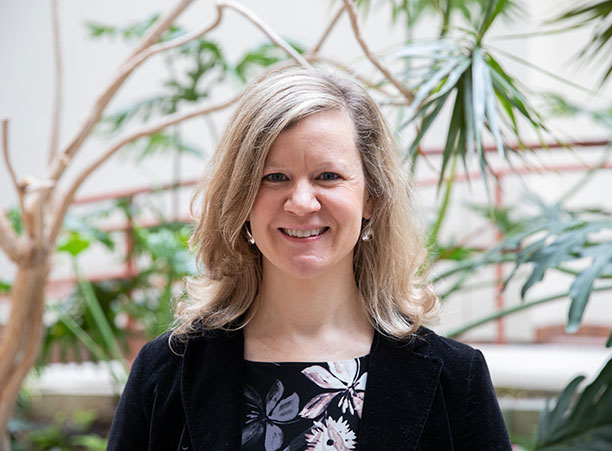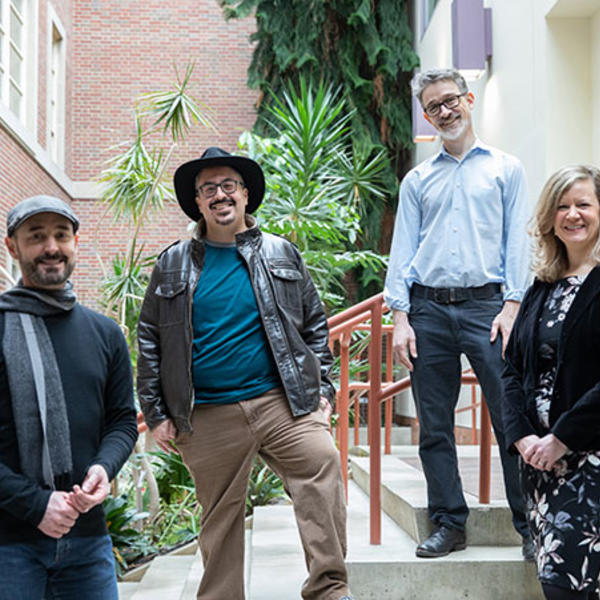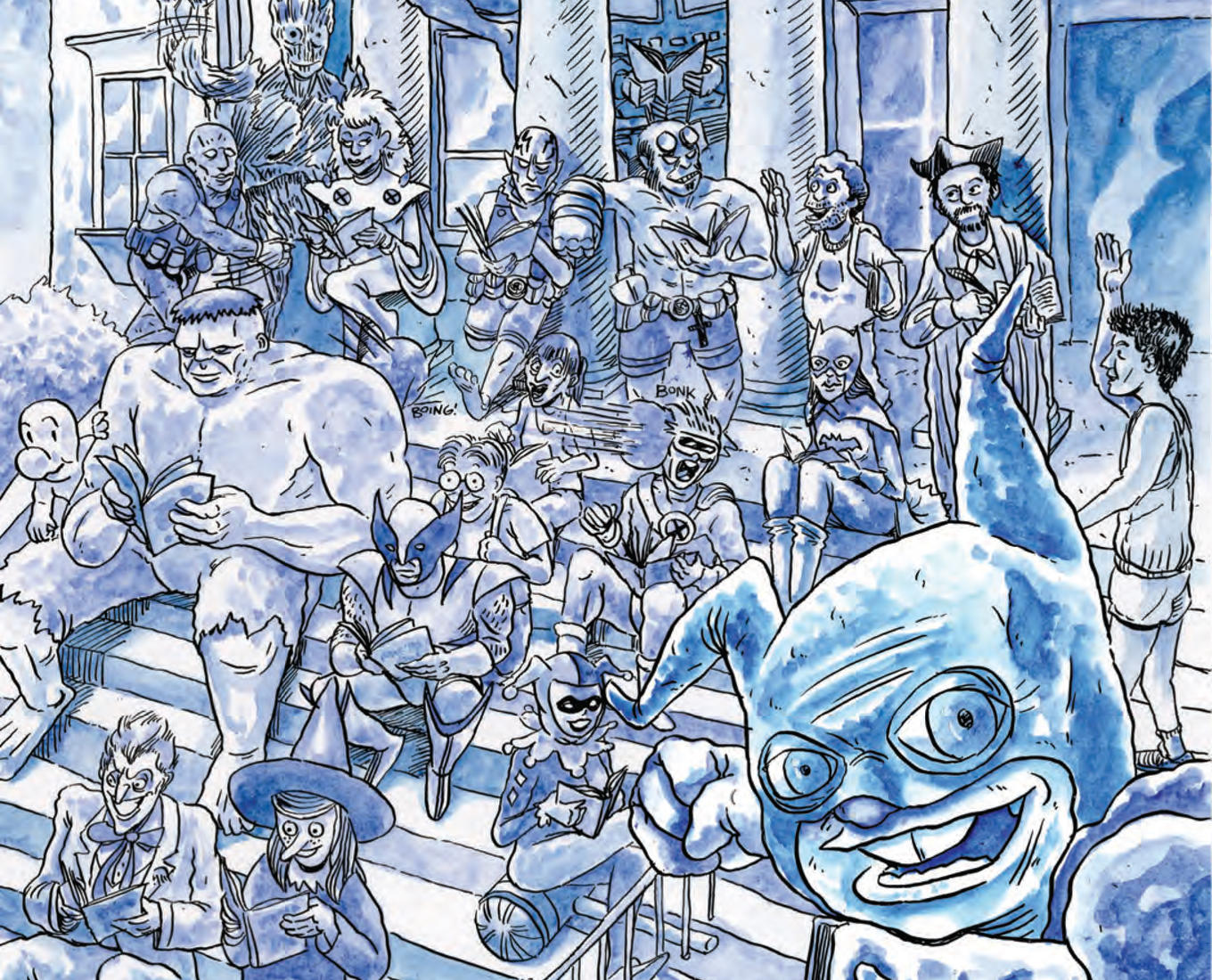Whether researching graphic novels or studying the ethics of major companies, Holy Cross faculty members are making significant, lasting impacts on their fields. Learn more about the four recently promoted faculty members below.
Karen V. Guth, religious studies

Karen V. Guth, of the religious studies department, earned a B.A. in religion from Furman University, an M.Th. in literature, theology and the arts from the University of Glasgow, an M.T.S. in religion and society from Harvard University Divinity School, and a Ph.D. in religious ethics from the University of Virginia. Her research focuses on Christian social ethics, public and political theology, and feminist ethics and theologies. She has been a member of the Holy Cross faculty since 2016.
What are you working on now?
I'm putting the finishing touches on my second book, "The Ethics of Tainted Legacies: Human Flourishing after Traumatic Pasts." It explores the ethics of engaging religious, cultural and political legacies tied to past wrongdoing. In the first part of the book, I identify "tainted legacies" as a distinct moral problem not yet theorized in philosophical or religious ethics. In the second part, I offer case studies of three such controversies prominent in contemporary American public debate: how to handle the work of artists the #MeToo movement has exposed as abusers; what to do with Confederate monuments; and how American universities might best make reparations for slavery.
Each case study takes a theological conversation as its point of departure, showing how prior debate in the history of Christian thought both anticipates and illuminates the case in contemporary public life. I draw particularly on Christian debates over the Bible, the cross, and the idea of redemptive suffering.
Much of your research focuses on ethics and civil rights. Where did your interest in these topics come from?
I've always been interested in "ultimate" questions about what really matters. When I took my first religion course in college, it opened my eyes to a whole new discipline of exploration, and I was hooked. Over the course of my graduate studies, I found my way to the field of religious ethics, and more particularly Christian ethics — probably because it allowed me to pursue these questions through study of my own tradition.
I see the Christian tradition as one of many long, embodied arguments over the question of what it means to live well, and I absolutely love inviting my students into that conversation. My interest in civil rights is a result of my larger interest in the role of religion in social movements and my study of Dr. Martin Luther King, Jr. He's one of my favorites among the many compelling figures in Protestant social ethics.
Ellis Jones, sociology

Ellis Jones, of the sociology and anthropology department, earned a B.A. in international relations from the University of Southern California, an M.A. in international peace studies from the University of Notre Dame, and a Ph.D. in sociology from the University of Colorado. His research focuses on ethical consumerism, corporate social responsibility, public sociology, sustainability, social movements and greenwashing. He has been a member of the Holy Cross faculty since 2009.
What are you working on now?
I'm working on a range of research projects: an edited volume on the geographies of craft beer, the 7th edition of "The Better World Shopping Guide," and a smartphone app that generates "honesty report cards" for U.S. politicians.
You mention that one of your research interests is craft beer. Why's that?
As a part of my long-term research on the social and environmental responsibility of just over 2,000 companies, I found that the most ethical company in the database was recently replaced by a craft brewery in Colorado. This peaked my interest in the industry, and I've been attempting to answer that question ever since.
Jeremy Jones, anthropology

Jeremy Jones, of the sociology and anthropology department, earned a B.A. in sociology and anthropology from Lewis and Clark College and an M.A. and Ph.D. in anthropology from the University of Chicago. His research focuses on the political and economic anthropology of Africa, with an emphasis on the informal economy, youth and temporality. He has been a member of the Holy Cross faculty since 2013.
What are you working on now?
Recently, I've been writing about quotidian aspects of social life amid Zimbabwe's 2007-2009 hyperinflation: what it was like standing in long lines for basic goods, how young men's beer-drinking habits changed, how the crisis inflicted people's domestic lives and plans for the future. In the next year, I hope to draw that work together into a book manuscript.
Why should students be interested in studying anthropology?
To me, anthropology is about possibility; it allows us to exit our own narrow worlds of meaning and practice, to see things from different perspectives and perhaps to organize our lives in new ways. That message is as important now as it was when I was an undergrad. After all, the economic and political centrality of the United States does not mean that our experiences here (and a very limited set of our experiences, at that!) offer the last word on what it means to be human. The world is a big place, and we encourage our students to let it be big and to resist easy simplifications.
Jorge Santos, English

Jorge Santos, of the English department, earned a B.A., M.A., and Ph.D. in English from Sam Houston State University, Texas Southern University and the University of Connecticut, respectively. His research focuses on ethnic American literature, immigrant and migrant literature, ethnic studies, American cultural studies, comic studies and Asian American literature. He has been a member of the Holy Cross faculty since 2014.
What are you working on now?
I have begun researching a project tentatively titled "Visualizing Vietnam" that extends the work of my book, "Graphic Memories of the Civil Rights Movement: Reframing History with Comics," into cultural remembrances of the Vietnam war, expanding my view to include film.
You work a lot with graphic novels. Where did your interest in them come from?
My father banned them from the house because he considered them trashy literature about "nothing but monsters." So of course, I read as many comics as I could. Then I took a graphic novels course in graduate school with my mentor and I began to realize that comics deserved academic attention alongside my fervent devotion.


